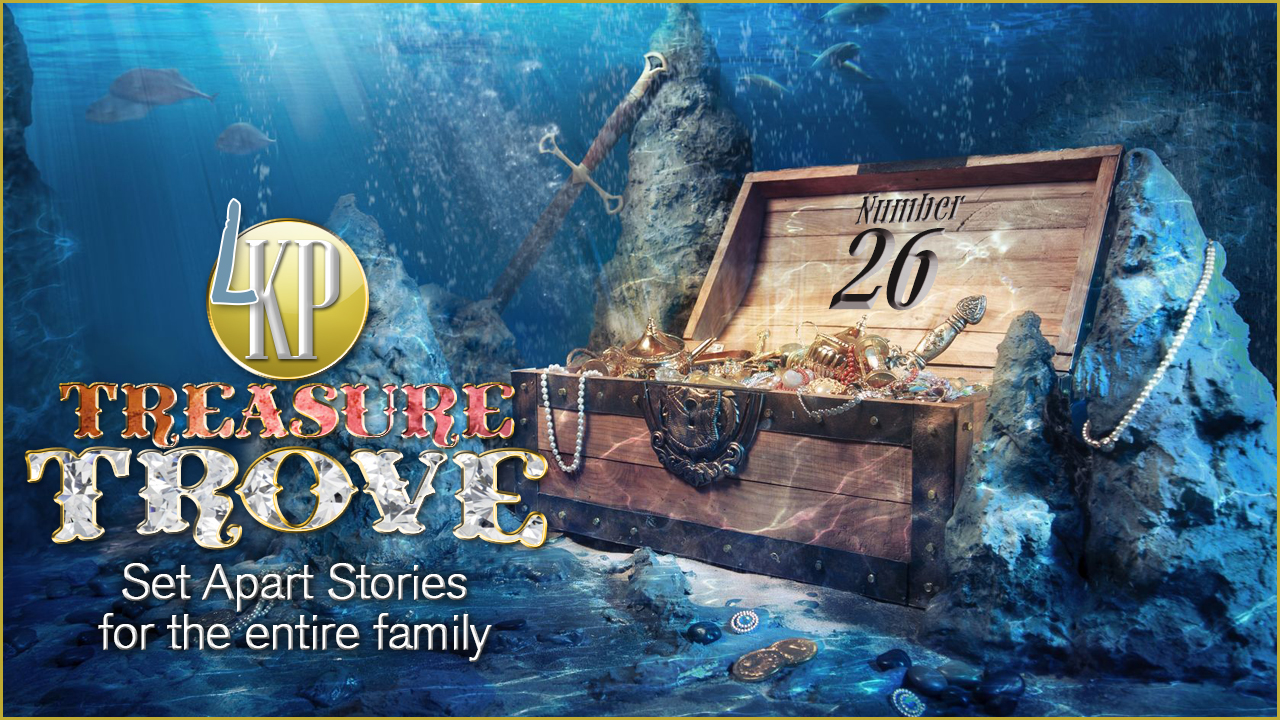Welcome to another edition of the LKP Treasure Trove
Research shows that the English word Easter comes from the name Eostre, which itself comes from Astarte or Ashtoreth. These are in fact different names for the same pagan goddess. Pagans in the British Isles worshipped Astarte after the Druids introduced her to them, but the Chaldeans and Babylonians knew her as Ishtar. So, Easter, the same Ashtoreth (the so-called Queen of Heaven our ancestors served), is still around today. Nicole will learn this truth in today’s story.
The Easter Unbeliever
Nicole was spending the weekend at her cousin Regina’s house. That Sunday was Easter, a pagan holiday that neither of their Hebrew parents had celebrated for years. Despite this, Nicole still held to a few false notions associated with that day.
There was a new pet rabbit who lived in Regina’s room, and while Regina fed her, Nicole asked a question that eventually made her feel very silly. “Will you give away the eggs she lays so your neighbors can paint them for Easter egg hunts?”
Regina wrinkled her nose at her younger cousin and chuckled. “First of all, rabbits don’t lay eggs. I won’t even ask where you got that idea. Second, why would I help my neighbors celebrate something I don’t believe in? That would be wrong.”
If Nicole could blush, her face would have been as red as a tomato. Instead, she offered an awkward smile and tried to change the subject. “Forget I asked. Hey, do you want to take her outside for a bit?”
But that little trick didn’t work on Regina. “Not after she’s been fed,” Regina replied. Regina sat on the plush bench in front of her bedroom window and said, “I want to ask you a question, but don’t be embarrassed.”
“What is it?” Nicole asked, as she snuggled with the rabbit and gently stroked her.
“Do you still celebrate Easter?”
Nicole frowned, but in a quiet voice she said, “Some years I do partake in egg hunts at school or at the library.”
Regina looked puzzled. “Aunt Bertha and Uncle Raymond don’t mind you doing that?”
“Well, they’re not as strict as your parents when it comes to our Hebrew heritage.”
“Hey, strict or not,” Regina replied, “I don’t practice any of that stuff. Do you know why?”
Nicole shook her head. “Why?”
“Because it’s not part of who we are,” Regina said. “Nobody explained this to you?”
“No,” Nicole said, shaking her head again.
“Well, we used to be Catholic, and any Christian will tell you that Easter celebrates the resurrection of the Messiah. But originally it celebrated something else.”
Regina continued to explain the origins of Easter, going into detail about the Germanic goddess Eostre, and how the word Easter derived from her. She addressed the early Anglo-Saxon festival that honored the goddess and the coming of spring, which the pagans saw as a resurrection of nature itself.
“But this goes way back to ancient times,” Regina said. “Anyway, eggs and rabbits were considered sacred to her. That’s why they’re still a part of Easter today. But since I don’t believe in any of that you can call me an Easter unbeliever.”
NOW, WHAT ABOUT YOU?
Do you still celebrate this pagan tradition even though it has nothing to do with the law or perfect will of Yah? Scripture forbids us to practice the customs of the nations, and many nations have celebrated Easter in some way for thousands of years. Those traditions continue, but we as servants of the Most High must choose to practice Torah, which contains laws, statues, and commandments written for our benefit.





